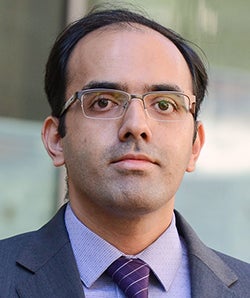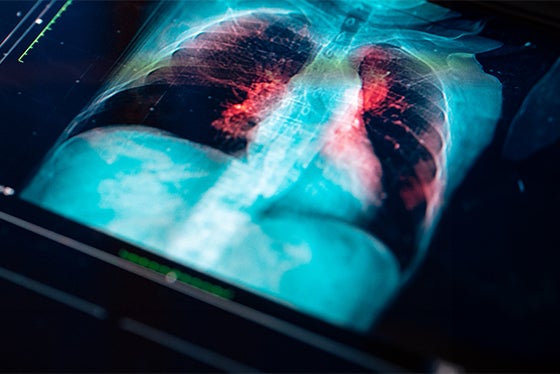
The National Science Foundation has awarded nearly $1 million to computer engineering scholars from UC Riverside and Washington University in St. Louis to advance artificial intelligence, or AI, methods for image generation systems used in science, medicine, and engineering.
The four-year collaboration will address a major weakness in AI imaging models: their tendency to degrade when conditions differ from those used when the models were trained with machine learning methods. The project will be led by M. Salman Asif, associate professor in electrical and computer engineering at UCR, and Ulugbek Kamilov, associate professor in electrical and systems engineering at Washington University, or WashU.
Modern imaging systems often rely on computational algorithms to reconstruct high-quality visuals from limited or indirect data, but current models falter when faced with real-world variability.
“Most AI image reconstruction tools assume the working data will look just like the training data,” Asif said. “But in practice, imaging conditions change. That mismatch can severely degrade image quality.”
To solve this, the team is developing a unified mathematical framework called Robust Score-based Inversion, or RoSI. The method centers on “score-based” models—a class of deep generative models that solve inverse problems by learning the gradient, or score, of image distributions.
In the development of RoSI, the researchers will quantify how data distribution shifts affect image quality using the model’s own score function; understand the impact of these shifts on image reconstruction and sampling; and enable adaptive recalibration of models to new imaging conditions.

The approach will be tested across a range of real-world imaging systems, including lensless cameras, computational microscopes, and magnetic resonance imaging (MRI), which is widely used for medical diagnosis. AI imaging enhancement could allow for quicker and more accurate MRI scans, among many other applications.
“This work could transform AI reliability in imaging,” Kamilov said. “Our goal is to build tools that are mathematically sound and practically robust.”
The funding comes from the NSF’s Communications and Information Foundations (CIF) Program in separate grants for UCR and WashU, which are $520,000 and $478,639, respectively. They are part of the NSF’s continuing investment in foundational research in computing and information science and a broader national effort to make machine learning systems more trustworthy and effective across diverse applications.